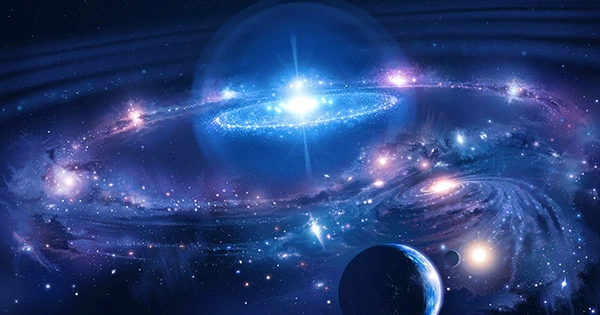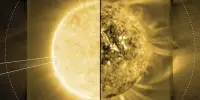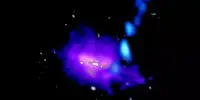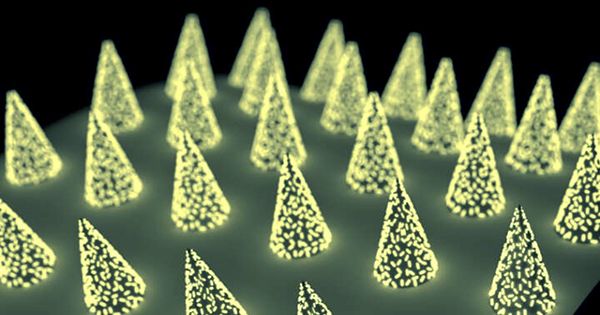Can science explain the origins of the Universe? The Big Bang model, developed by George Gamow, Ralph Alpher, and Robert Herman, reconstructed the history of the Universe from about one ten-thousandth of a second after the “bang,” all the way to the formation of the first hydrogen atoms and the decoupling of photons when the Universe was about 400,000 years old. The cosmic microwave background radiation was identified in 1965 as a result of this last step.
The demise of physics as we know it
The Universe was born from a primordial soup of basic particles and radiation, all clashing madly. This early Universe picture has been enormously successful, motivating physicists to push their models as far back in time as they possibly can. But how far will they be able to travel? How near can scientific models get to the source? Could they go all the way back to t = 0, the beginning of time? Or does the concept of time passing lose value as we get closer to the origin?

This is an old dilemma, referred to as the First Cause by certain philosophers. If everything truly begins abruptly, a Universe that becomes itself at some moment in the past, it must be due to an uncaused cause – a cause that cannot be preceded by anything else. Any hypothesis for the beginning of the Universe employs well-established physical rules and places them inside the physics conceptual framework. Science can’t help but use something to describe things, and this something presumes the presence of a material foundation. To put it another way, in order to see something hatch, we must first start with an egg, and the question is where this egg originates from.
It is all too easy to become trapped in a perpetual regression, a situation popularly referred to as “turtles all the way down.” As a result, developing a viable explanation for the formation of the Universe does not address the question of why this Universe behaves as it does. Science provides many answers to the workings of nature, but we must not forget its limitations. The question of why there is something instead of nothing should humble us all.
Extrapolating any of the standard cosmological models to time t = 0 results in what is known as a singularity. The density of matter becomes limitless, as does the curvature of spacetime, and the distance between any two observers becomes zero. As unsettling as it may sound, the existence of a singularity should not be taken too seriously. It denotes the breakdown of general relativity and physics as we know it under the severe conditions that prevailed during the Universe’s early beginnings. In essence, the singularity represents our lack of understanding of physics at these extremely high energy scales. Something else is required here, and ideas are many. The most promising of these require a combination of general relativity and quantum mechanics.
















